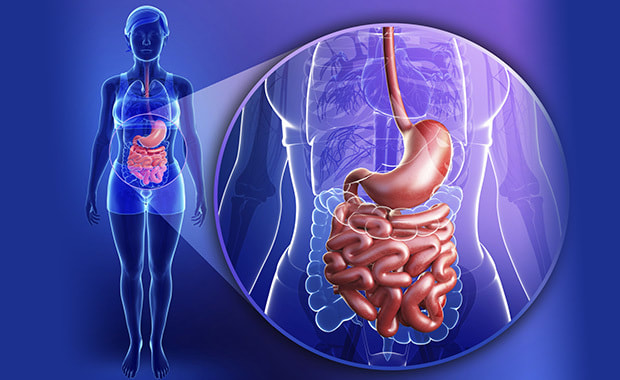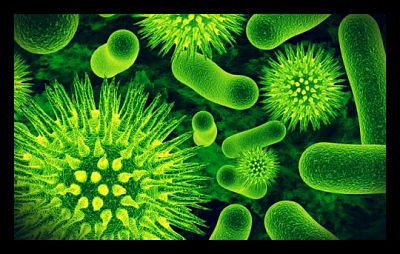|
Gut health & Homeopathy. Dysbiosis - a clinical study. Outpatients aged from 4 to 72 suffering from gastrointestinal disturbances, such as constipation and diarrhoea, were enrolled in this 2017 study. 69.6% showed some type of improvement, while 26% of patients showed major improvement or eradication of symptoms. These results suggest that homeopathic medicine could possibly be a useful method for controlling gastrointestinal disturbances. [1] Homeopaths acknowledge that the body of evidence for homeopathic medicine is small but growing and much more research needs to happen. The homeopathic medicines used in this study were bowel nosodes. The source materials for the bowel nosodes are certain groups of bacteria found as part of the bacterial flora of the human intestine in states of ill health; human gut microbiota. Since the 1920’s Homeopaths have observed the connection of bacterial flora of the human intestine in particular states of ill health and at specific stages of the disease process and utilized bowel nosodes as medicines to treat chronic disease. In 1925 Dr Bach, a bacteriologist and physician at the Royal London Homeopathic hospital, along with Dr Wheeler, published Chronic Disease a Working Hypothesis in which chronic disease was held to be caused by the absorption of toxins from the bowels to a greater or lesser degree depending upon the permeability of the individual’s intestinal mucosa. Homeopathic philosophy, theory and practice has a more complex, evolved understanding of health and disease. What is dysbiosis? Dysbiosis means microbial imbalance. Dysbiosis is most prominent in the digestive tract and on the skin, but can be found on any exposed surface or mucous membrane, such as the vagina, lungs, mouth, nose, sinuses, ears, nails or eyes. Dysbiosis of the gut microbiota is associated with intestinal and extra-intestinal disorders. Intestinal disorders include irritable bowel syndrome (IBS), and coeliac disease. Extra-intestinal disorders include allergy, asthma, heart disease, and obesity. Gastrointestinal disturbances such as Chron’s disease, colitis and gastritis are often among the symptoms commonly reported by individuals’ diagnosed as suffering from chronic diseases, such as inflammatory bowel disease, autism, and chronic fatigue syndrome. In many conditions of dysbiosis, disease development involves the mutual relationship between the gut microbiota and the immune system. Dysbiosis has multi layered causations[2] not just the overgrowth or absence of microorganisms. Microorganisms are an unchartered world of major importance (survival) to us and all other larger organisms living on planet Earth. Impressively, the average adult human is comprised of over 100 trillion cells! Even more impressive is that of our 100 trillion cells only 37.2 trillion[3] are human…The other trillions are bacteria, fungi, viruses and parasites. We are outnumbered in our own bodies 3:1! Homeopathic medicine is not out to kill microbes but aims to help us to live in better harmony within ourselves, our surroundings and the world of microorgansims. What is homeopathic medicine? Homeopathic medicine is a branch of medical science based on the principle that disease can be combated through strengthening the body’s defense mechanism (immune system) with substances selected for their energy giving properties. Homeopathic medicines are complimentary meaning they can be taken alongside conventional medications; simple to administer and gentle enough for young children too. Most importantly, homeopathic medicine aims to improve the body’s energy levels which homeopaths know to lie at the root of sickness and disease. Sarah Penrose's peer reviewed paper Drugs, Dysbiosis and the Bowel Nosodes examining nine cases of resolved gut disturbance was published in Similia, The Australian Journal of Homeopathic Medicine (Vol. 31, No. 1) in June 2019.
6 Comments
VTRAJ
11/7/2020 11:06:25 pm
Article is informative. Link for the journal viz. Australian journal of homeopathy vol31 no 1 of July2019 should have been provided . It would have been a boon. Regards. VTRAJ
Reply
1/8/2023 02:15:19 pm
Hi there, thank you for your comment.
Reply
19/1/2022 05:23:41 pm
Amazing write-up! Reading one of the best informative posts about Homeopathic Medicine will help to the Best homeopathic medicines . Thanks for sharing!
Reply
Your comment will be posted after it is approved.
Leave a Reply. |
AuthorSkilled in unravelling complex patterns of ill health, Sarah Penrose is a qualified, registered and endorsed natural health professional specializing in homeopathic medicine. Archives
December 2022
Categories |




 RSS Feed
RSS Feed



